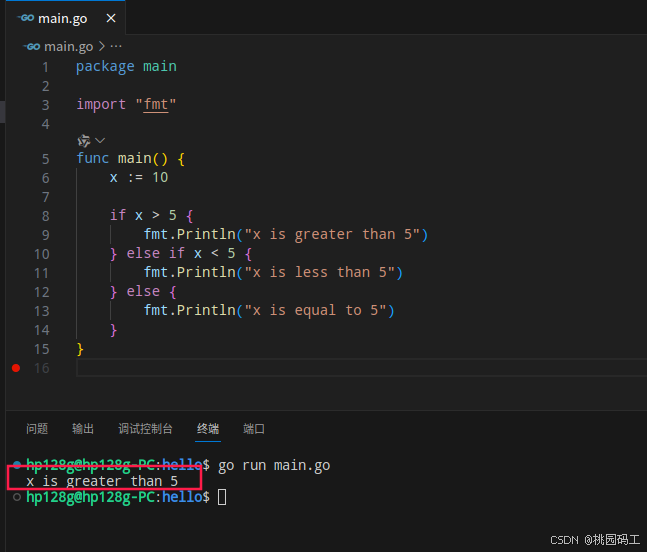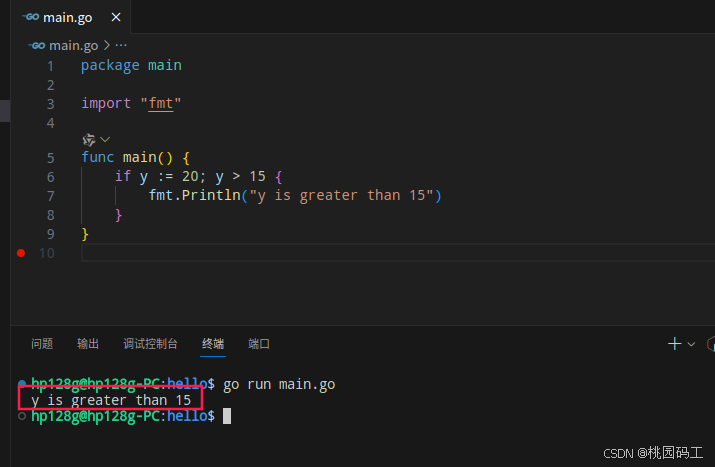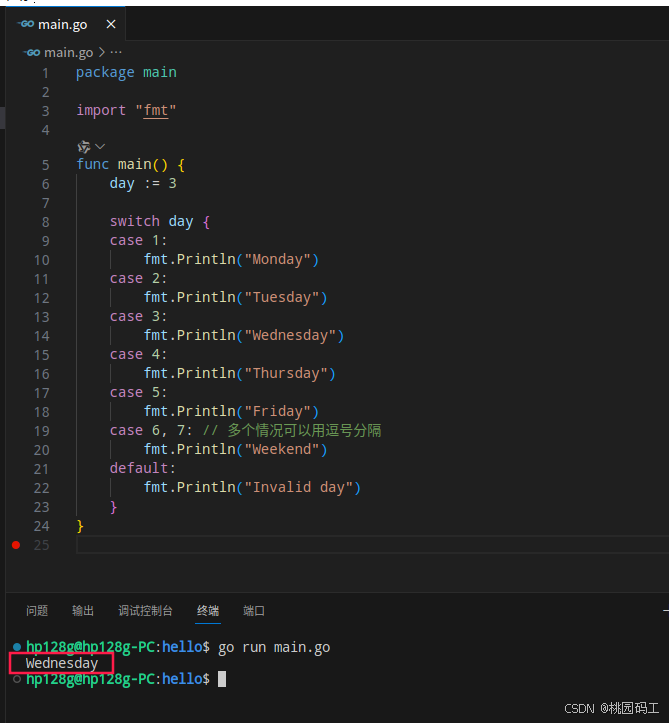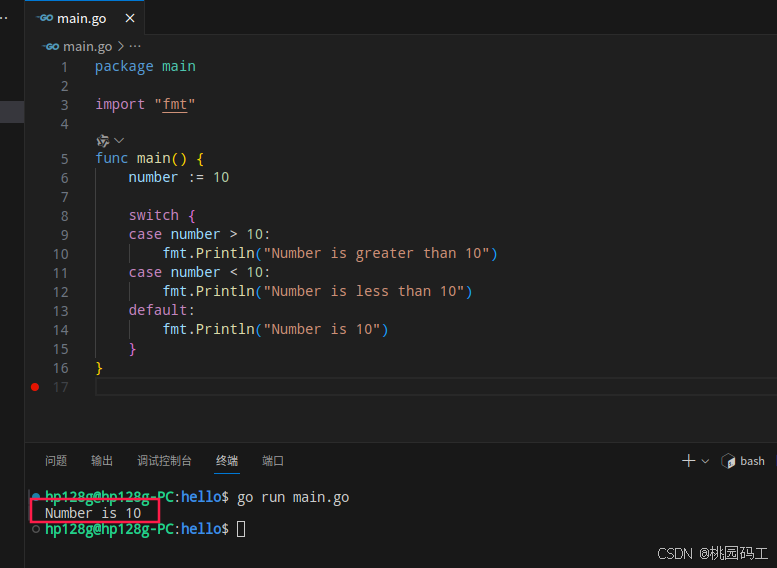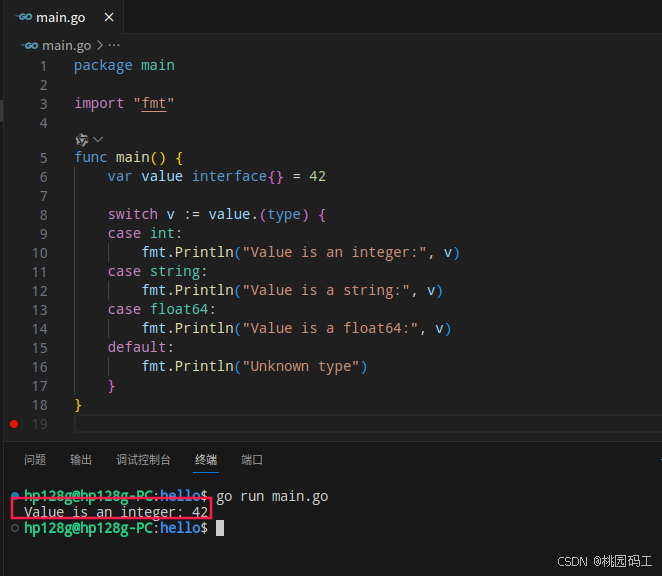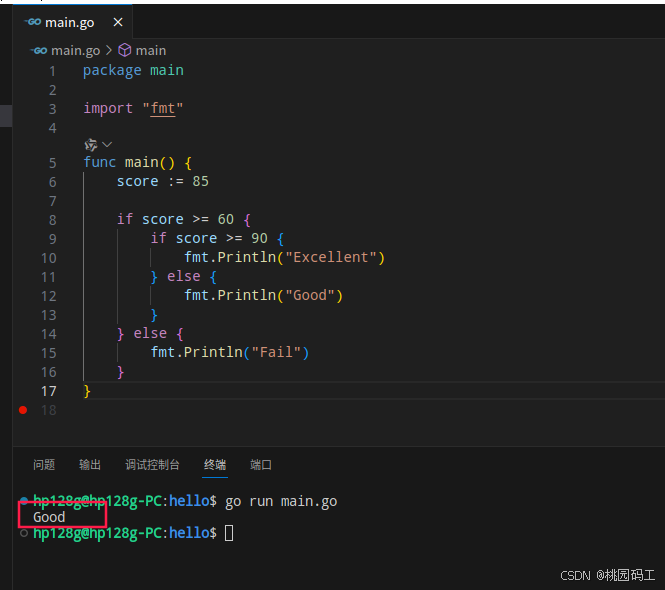在Go语言中,条件语句用于基于不同的条件执行不同的代码块。主要的条件语句包括if、else和switch。下面是一些关于如何使用这些条件语句的基本示例。
if 语句
if 语句是最基本的条件语句,用于检查一个布尔表达式,如果该表达式为真,则执行相应的代码块。
package main
import "fmt"
func main() {
x := 10
if x > 5 {
fmt.Println("x is greater than 5")
} else if x < 5 {
fmt.Println("x is less than 5")
} else {
fmt.Println("x is equal to 5")
}
}
带有初始化语句的 if 语句
你可以在 if 语句中包含一个初始化语句,这个语句仅在 if 语句执行时运行一次。
package main
import "fmt"
func main() {
if y := 20; y > 15 {
fmt.Println("y is greater than 15")
}
}
switch 语句
switch 语句允许你根据变量的不同值执行不同的代码块。switch 语句可以非常灵活,并且支持多种匹配模式。
基本 switch 语句
package main
import "fmt"
func main() {
day := 3
switch day {
case 1:
fmt.Println("Monday")
case 2:
fmt.Println("Tuesday")
case 3:
fmt.Println("Wednesday")
case 4:
fmt.Println("Thursday")
case 5:
fmt.Println("Friday")
case 6, 7: // 多个情况可以用逗号分隔
fmt.Println("Weekend")
default:
fmt.Println("Invalid day")
}
}
switch 语句中的表达式
你可以省略 case 后面的条件,直接使用表达式。
package main
import "fmt"
func main() {
number := 10
switch {
case number > 10:
fmt.Println("Number is greater than 10")
case number < 10:
fmt.Println("Number is less than 10")
default:
fmt.Println("Number is 10")
}
}
switch 语句中的类型断言
switch 语句还可以用于类型断言,这对于处理空接口(interface{})特别有用。
package main
import "fmt"
func main() {
var value interface{} = 42
switch v := value.(type) {
case int:
fmt.Println("Value is an integer:", v)
case string:
fmt.Println("Value is a string:", v)
case float64:
fmt.Println("Value is a float64:", v)
default:
fmt.Println("Unknown type")
}
}
嵌套条件语句
你也可以在 if 或 switch 语句内部嵌套其他条件语句。
package main
import "fmt"
func main() {
score := 85
if score >= 60 {
if score >= 90 {
fmt.Println("Excellent")
} else {
fmt.Println("Good")
}
} else {
fmt.Println("Fail")
}
}
通过这些示例,你可以看到如何在Go语言中使用条件语句来控制程序的流程。条件语句是编写逻辑复杂程序的基础,能够帮助你根据不同的条件执行不同的操作。
